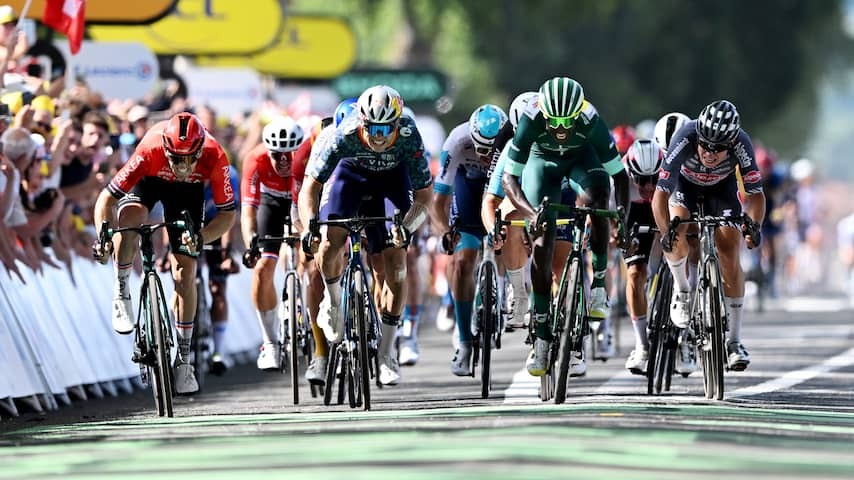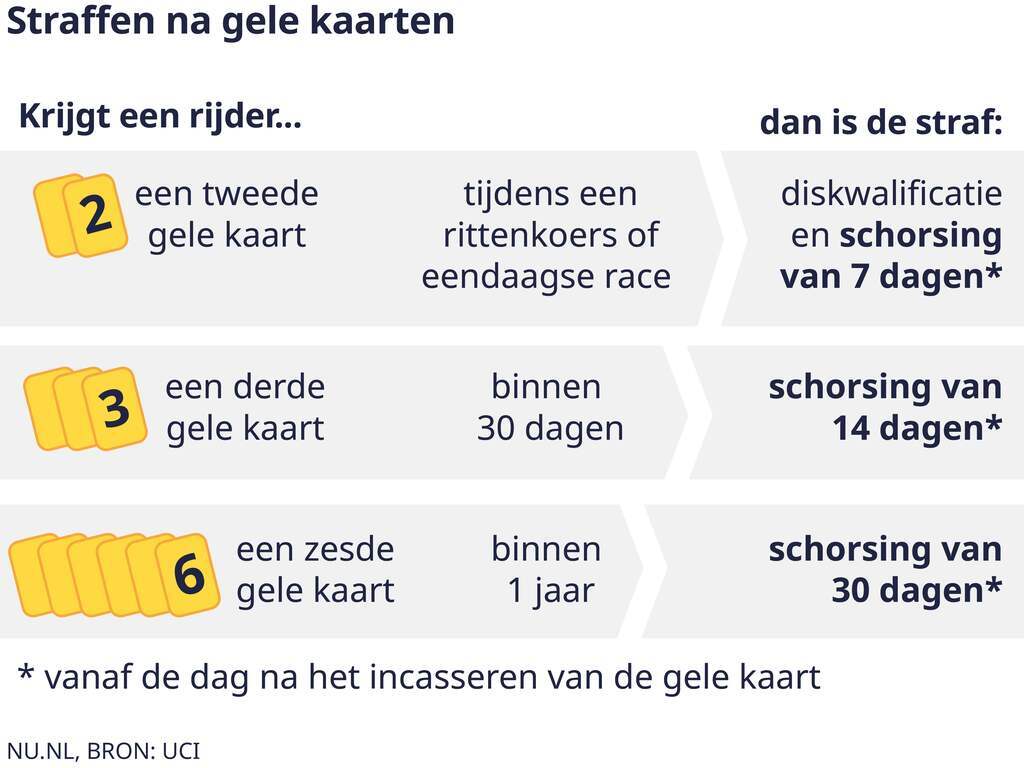
For the first time in the 122-year history of the Tour de France, riders can receive yellow cards for misconduct. How does the card system work, and what are the consequences? NU.nl explains.
The international cycling federation UCI introduced the card system at the beginning of this year to make cycling safer. In the eyes of the cycling federation, too many crashes occurred due to the misconduct of riders and team leaders.
A rider can receive a yellow card for nineteen different violations, according to the UCI regulations. The most important are deviating from the line in a mass sprint, drafting behind a team car, and pushing or riding on a road outside the course.
The card system in cycling is modeled after soccer. A first yellow card is a warning and has no consequences. A second yellow card does. The rider in question must leave the race immediately and is also suspended for seven days.
The UCI commissioners act as referees. They can also use the images to come to a judgment and are therefore both referee and VAR in one. Incidentally, these commissioners do not give physical yellow cards. They only report a card in the race communiqué.

Riesebeek was the first rider to be suspended
Since the start of the cycling season, 67 yellow cards have already been handed out to riders (men and women), according to a UCI database. The Dutchman Oscar Riesebeek had the dubious honor last month of being the first rider ever to be removed from the race by the card system.
It happened to Riesebeek, who rides for Mathieu van der Poel’s team, in the Tour of Belgium. First, he veered across the road in one go, and then he used a path that did not belong to the course. As a result of the seven-day suspension, he missed the Dutch National Road Race Championships in his birthplace of Ede on Saturday.
Riesebeek served his suspension and seemed to be able to prepare for his Tour debut, but Alpecin-Deceuninck decided to pass him for the biggest cycling race in the world on Tuesday. It has not been announced whether this has anything to do with his yellow cards.
Riesebeek would have had to watch out if he had participated in the Tour de France. A rider who picks up three yellow cards within a period of thirty days will be suspended for two weeks. Riesebeek would therefore have ridden two-thirds of the Tour in the danger zone: he received his first yellow card on June 19. The Tour lasts until July 27.

Criticism of arbitrariness in cards
The discussions in soccer about yellow and red cards have now also spilled over to cycling. Giving cards is also a matter of interpreting the rules in cycling.
For example, the Belgian sprinter Jasper Philipsen did not receive a yellow card in February after he deviated significantly from his line in the sprint in the Tour of the United Arab Emirates. He was only relegated.
“I don’t actually know the difference between a yellow card and a relegation,” said Belgian sprinter Jordi Meeus to Sporza. Former Olympic champion Greg Van Avermaet unsuccessfully pleaded for a committee of former riders to determine whether a violation is worthy of a yellow card.
None of the 184 Tour participants are on edge at the start in Lille on Saturday. Time will tell if that is still the case after the first week, when the nervousness in the peloton is always greatest.